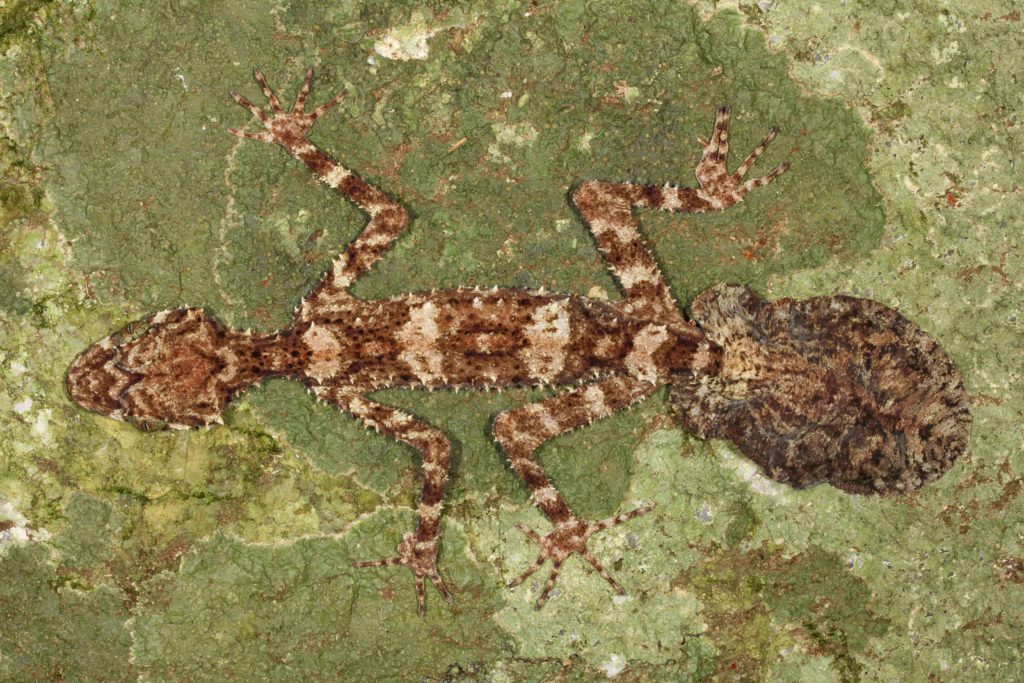A James Cook University-National Geographic expedition to Cape Melville in north-east
Australia has found three vertebrate species new to science and isolated for millions of years—a bizarre looking leaf-tail gecko, a golden-coloured skink and a boulder-dwelling frog that doesn’t need water to breed.
The rugged mountain range of Cape Melville is an amazing place—millions of black granite boulders the size of cars and houses piled hundreds of meters high. Surveys have previously been conducted in the boulder-fields around the base of Cape Melville but the plateau of boulder-strewn rainforest on top had remained largely unexplored, fortressed by massive boulder walls.
The expedition, led by Dr Conrad Hoskin (James Cook University) and Dr Tim Laman (National Geographic), was the first to the plateau. The upland rainforest of Cape Melville is isolated from larger rainforest areas to the north and south by hot, dry forests. The gecko, skink, frog and other rainforest-associated inhabitants are restricted to Cape Melville and have been completely isolated up there for millions of years.
All three new species are adapted to a boulder-dwelling lifestyle suggesting that an association with rocks was key to their long-term persistence in such a tiny area over millennia. Even when rainforest contracted in the past, the mountainous pile of rocks acted as a cool, moist refuge. The new species were named by Dr Hoskin in three papers in the international taxonomy journal Zootaxa. Finding three obviously new vertebrate species at one site is unprecedented in Australia these days, leading to Cape Melville being described as a ‘lost world’. And there’s more to come—several additional new species are currently being described—so the uniqueness of Cape Melville has yet to be fully revealed.
Are you the author of this article? We had a site crash back in 2016 and lost some author attributions. We promise this is not a snub! Please email us and let us know that this is your post. Thanks and apologies!


